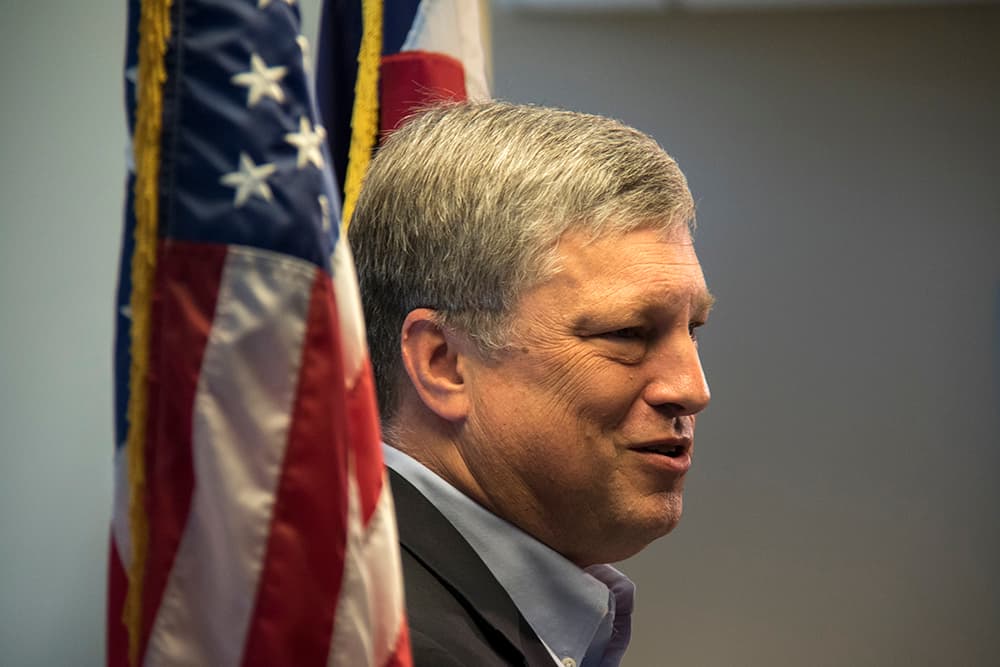
The same public records law that allows candidates, political parties, campaign organizations, the press and any old private citizen to request voter registration data compels Colorado to turn over voter records to a federal election integrity commission convened by President Donald Trump, Secretary of State Wayne Williams said.
"If you've ever been involved in a political campaign and made calls or walked precincts or stuffed mailers, you have been doing that based on a voter registration list," he said. "... As I've said, lots of people make the request. We've had dozens, hundreds of requests over the years. Colorado law does not require anybody to tell us why they seek particular information. Colorado law does not permit the secretary of state or the county election officials or anybody else to say, 'I'm only going to give it to the people I like,' or 'I'm only going to give it to my friends,' or 'I'm only going to give it to the people in my party.' That is not a provision of Colorado law, nor do you want to put such a provision in place where only favored people can receive that information."
Williams addressed the press Wednesday morning in response to an intense backlash to his stated intention to provide the publicly available portions of the voter registration record to the Presidential Advisory Commission on Election Integrity. Trump created this group after repeatedly claiming with no evidence that between 3 million and 5 million people voted illegally in the 2016 election.
Colorado public records law also says that existing databases that are public record must be turned over in easily readable electronic form and that no entity can require someone to come down and request a record in person.
Williams said people asking him to not turn over the records or to make it harder than necessary for the commission to get this information are asking him to violate the law, and he can't do that.
Williams said he does not plan to charge the federal government for the data, and he did not charge the federal government for information requested under the previous administration.
One thing that's worth noting: When national media report that 44 states are not complying with the commission's request, many of those states are supplying the publicly available information -- just like Colorado. They've just framed their responses differently and in a more critical manner. In nearly every state, the publicly available information is much less than the long list of data included in the commission's letter. Even Kansas, where commission vice chair Kris Kobach is secretary of state, is not supplying the full list of requested information.
Kobach's spokeswoman Samantha Poetter told CNN last week that, "only 'publicly available' information will be shared with the Commission. Any person in Kansas can obtain it. It is the basic information -- name, address, etc. -- not the sensitive information like last four SSN. That information is not publicly available, and therefore it is not part of the request."
The publicly available information in Colorado includes:
- full name
- address
- year of birth
- political party
- vote history
Colorado will not be providing Social Security numbers, driver's license numbers or full dates of birth for any voters. "Vote history" refers to the record of which elections you've voted in, not how you voted in those elections.
There is a process for becoming a confidential voter if you fear for your safety if your address is revealed. It is the current practice of the Secretary of State's Office to not show any information -- even the name -- of confidential voters, even though the law only requires that the address be protected, Williams said.











